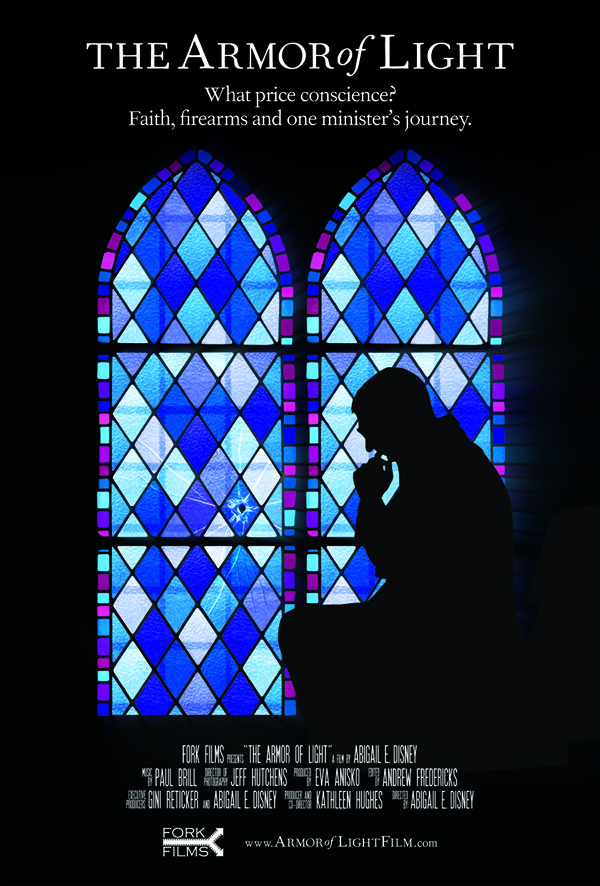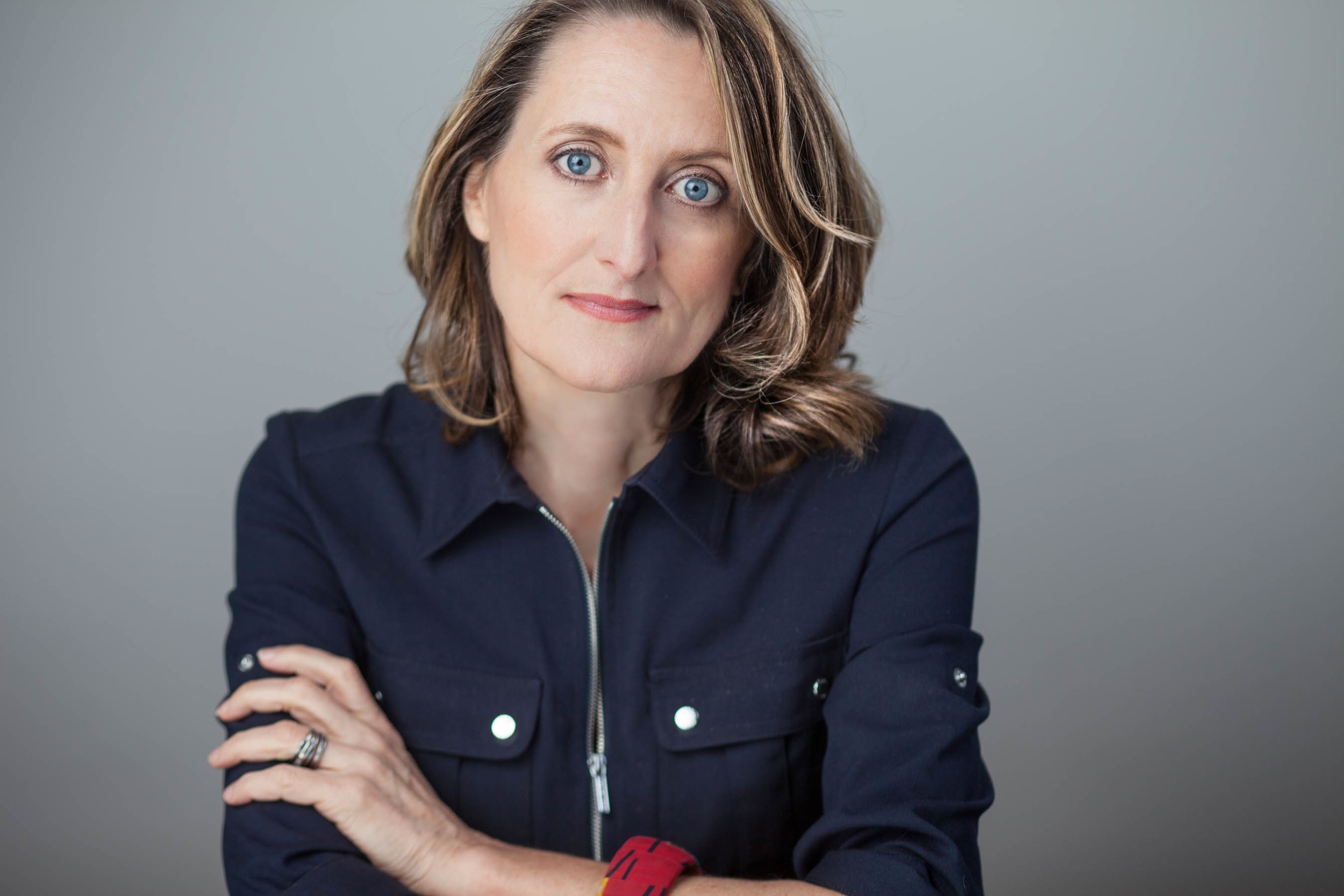New film, The Armor of Light, seeks common ground on gun violence
The story about how a conservative, pro-life evangelical minister Rob Schenck changes his view on guns
NEW YORK CITY – It was a huge weekend in New York City. The Mets played the third, fourth and fifth games of the World Series on Friday, Saturday and Sunday nights, and the New York City Marathon was run on Sunday, with tens of thousands of runners traversing the boroughs.
The weekend also marked the theatrical release of a remarkable new documentary, The Armor of Light, made by Abigail Disney, the grand-niece of Walt Disney, and Kathleen Hughes, exploring the evolving views of a pro-life, evangelical Christian minister, the Rev. Rob Schenck, on gun violence.
On Friday, Oct. 30, timed to the release of the film, The New York Times also published online a video op-ed doc, entitled, “Would Jesus wear a sidearm?” where the Rev. Schenck, a prominent leader of the Christian right, explains why he left the Republican Party over guns. [See link to shorter documentary below.]
The feature documentary takes a much different tack than what you might expect: it is about conversation, and listening, and dialogue; it is not an action movie, there is no sensationalism to be found.
The point-of-view is told from the crisis of faith of an evangelical minister who can no longer justify his pro-life stance when it comes to guns, and how he engages with his parishioners and his colleagues, many of whom oppose his changed view.
As one reviewer described it, “It is a document of Christian life in America at this heightened moment of political discontent. Faith has been politicized to such an extent in this county that it’s hard to perceive someone’s difference in beliefs as the result of personal reflection and not political maneuvering.”
ConvergenceRI recently interviewed Kathleen Hughes about her work on the documentary and the nature of how conversation – the process of listening and engaging – can create common ground, even among those with strongly held political beliefs.
[As a matter of full transparency, ConvergenceRI and Hughes were colleagues in the mid-1980s, editors of a national environmental magazine in Washington, D.C.]
ConvergenceRI: How did the approach to the film, one focused on conversation, take shape?
HUGHES: Both us had met and were trying to figure out how to talk about the nation’s gun violence problem. We got started about four months after the murders at Sandy Hook and already, the political dialogue had reverted to polarized madness. It was clear that despite one of the worst horrors [of gun violence], that the national conversation about was not going to change. Both sides had essentially dug in their heels.
We wanted to figure out a different way to talk about this.
Abigail’s vision, in particular, was to engage in respectful conversation with conservatives. She comes from a famously conservative family and although these days she’s known as a New York liberal, she says the work she does is informed by the values she was raised with.
So, that’s where it all got started.
We began to speak to as many conservatives, especially those who defend gun rights as vociferously as they do the right to life, as we could, in good faith, asking: help us understand where you are coming from.
We wanted to know how these folks, mostly Evangelical Christians, could be so vehement about protecting the lives of the unborn child but not be equally concerned about protecting all the lives lost to gun violence? Wasn’t it all of a piece?
We started to find ministers, from the conservative side of things, who were completely sympathetic and troubled by the seeming inconsistencies around the sanctity of life question. But most were uncomfortable speaking publicly because of the ferocious politics around guns and gun control.
When we finally met Rev. Schenck, he told us that though his conscience had been troubled, he hadn’t made gun violence a priority, but he told us: let me pray on this and then let’s talk.
ConvergenceRI: How important is listening?
HUGHES: Listening is so important. And we do so little of it anymore in this country. We just shout slogans at one and other. It boils down to Fox News versus MSNBC.
It’s insane not to recognize the humanity of people on “the other side.” There are lots of people who genuinely think differently than I do – that doesn’t mean they are bad people.
ConvergenceRI: Beyond the commercial release this weekend, what are the plans for distribution?
HUGHES: We hope that it will be theaters for a long while. It will be broadcast on PBS in May 2016 along with a live town-hall discussion. Eventually it will make its way to Netflix.
ConvergenceRI: Can you talk about the common ground you uncovered around gun violence in making the film?
HUGHES: People who defend the Second Amendment, who believe in unfettered gun rights, say that they want to protect life. So do I, and I do not carry a gun. It was important for me to recognize that even though I think it’s dangerous to carry a loaded weapon, many of those who do pack heat want to protect life as much as I do.
And that’s really what we try and do with the film, to reboot the conversation, to move it off the political plane and onto a moral one. Forget politics. As Abigail says, we need to stop and do our moral homework on guns before we talk about whether and how any more laws are needed.
But you can’t have that conversation until everyone changes their assumptions about the other people in the room; we need to recognize that our values are more similar than we want to admit.
We are hoping that people who see the film will be inspired to come together to sit in the same room with those who have differing opinions about how to solve the gun problem. We want to generate civil and respectful conversations – real dialogue. Our goal is to have it screened and discussed in every church in the nation. I’m not kidding.
ConvergenceRI: How is that vision reflected in the art and craft of the film?
HUGHES: It isn’t an action film [laughing]. It’s really a think piece. As we crafted the film, we give time for everybody to be heard and we tried our best not trying to make people look foolish.
ConvergenceRI: How has the response been?
HUGHES: Whenever you make a film, you’re never really sure that it will make sense; you’re hoping that people will take away what you intended. I’m always amazed when people respond positively. And, so far, the audiences and the reviewers have been very moved by the film. It seems to be generating a lot of conversation and that’s fantastic.
ConvergenceRI: What about the response to the op-ed doc in The Times?
HUGHES: There’s a ton; last I looked [on Saturday afternoon], there were 262 comments. What happens, it seems, on these comment pages, is that people say something positive or negative, and then some of the commenters start arguing with and insulting each other. That’s not healthy dialogue, of course. But in between the shouters there are a lot of people congratulating Rev. Schenck for his bravery.
ConvergenceRI: Is shouting online the opportunity to be heard?
HUGHES: No, it’s more an opportunity to insult anonymously. People would behave differently if they were in the same room, looking each other in the eye.
ConvergenceRI: How has the film changed your world view?
HUGHES: That’s a difficult question. It’s made me more idealistic, if that’s possible, that in spite of how bad it seems, there’s maybe some hope that we can get along. People in any society will never agree on everything. But these days in America the art of compromise seems to have disappeared. I don’t think that we should be so resigned to that.
ConvergenceRI: Did you find it difficult to be up front about your own personal views and to express them while making the film?
HUGHES: It was very hard to listen to Rev. Schenck’s pro-life views. Both Abigail and I were uncomfortable with his pro-life beliefs and his political work.
But that’s exactly the point: we put our strong differences aside, we decided instead to focus on our common concerns around gun violence. We all agreed that reducing and stopping gun violence was about protecting the sanctity of life, and we were able to find commonality there. That type of “border crossing” doesn’t happen enough in our personal lives and especially in our political lives any more. I encourage everyone to give it a try.







